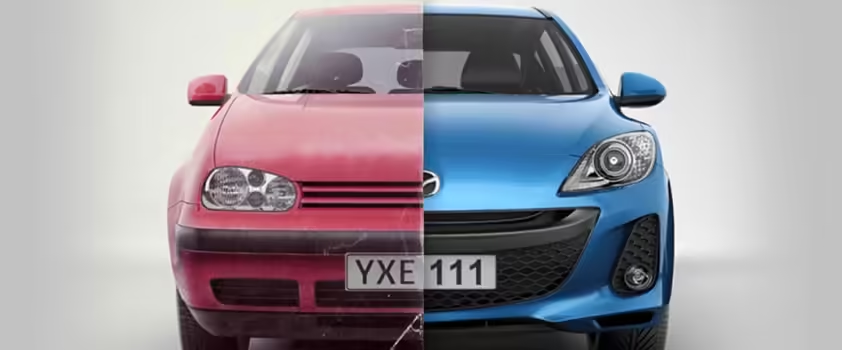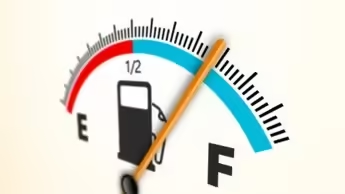Purchasing a first car is always a big deal particularly in India where car ownership is seen a morale and status symbol. This is because as one has countless choices out there, he or she may again get confused. It will be your one stop for all the information you need to make the right decision while arriving at your first car.
1. Set a Budget
First of all, on must determine how much money one can put in the purchase. So, your budget should also comprise not only the one-time expenses like the price of the car but also the regular ones like insurance, fuel, and repair. In India also cars start from very basic level small cars to fully loaded luxury cars so if you have budget you could straight away filter it.

Key Tip: Avoid spending too much in the hope of getting a good business since this will reach your financial limits. It is recommended only to take a loan if you are fully ready to receive credit repayments on a monthly basis.
2. Consider Your Driving Needs
Consider how you will be using the first car, more so because the first cars we are discussing are normally on the luxurious end of the scale. Is most of the driving going to be done within city traffic or on high-ways? Is your family and its needs requiring a larger car for occasional vacations or will a more compact vehicle better suit the narrow city streets? If you are a resident of Mumbai or Bangalore, then a small car would suffice the parking require and road conditions. However, if one is moving from city to city, say weekly, then probably a more robust car would be ideal for the highway.

Key Tip: Then you create a list of needs like fuel consumption, safety requirements, space, etc., and then you compare it to your driving demands.
3. Choose Between New or Used
The used car segment in the road transportation industry of India is on the rise and one only needs to understand why. That is seen as a great virtue, like buying a second-hand automobile; but with this decision comes a set of caveats. A new car is equipped with innovative features and valid warranty guarantees, but it loses value rapidly. A used car will cost less money, while the car that is in a bad condition will need a lot of maintenance to be okay.

Key Tip: If you’re considering a used car, always check the vehicle’s history, service records, and condition before making a purchase.
4. Fuel Type: Petrol, Diesel, or Electric?
In India, fuel efficiency is a big factor when choosing a first car. Petrol cars are generally cheaper but may have lower mileage compared to diesel vehicles. Diesel cars offer better fuel economy but are usually more expensive and may face stricter government regulations in the future. Electric vehicles (EVs) are an eco-friendly option, and with the rise of EV infrastructure in India, they are becoming more popular.

Key Tip: Evaluate your daily usage. If you’re commuting long distances, a diesel or electric vehicle may be more cost-effective in the long run. For shorter city drives, a petrol car could be the better choice.
5. Look at Fuel Efficiency
Fuel efficiency, or mileage, is a major consideration for first-time car buyers in India, especially with rising fuel prices. Cars that offer higher mileage will save you money in the long term. Hatchbacks like the Maruti Suzuki Alto and Hyundai Santro are known for their fuel efficiency.

Key Tip: Always compare the mileage of different cars in your price range. It’s also good to check real-world mileage from customer reviews, as it can differ from what manufacturers claim.
6. Safety Features
When buying your first car, safety should be a top priority. Look for first cars that come equipped with essential safety features like airbags, anti-lock braking systems (ABS), and rear parking sensors. These are becoming standard in many new models sold in India.

Key Tip: Don’t compromise on safety. Even if you’re tempted by cheaper models, ensure the car has basic safety features to protect you on the road.
7. Automatic vs. Manual Transmission
Indian drivers traditionally prefer manual transmissions due to their lower costs and better fuel efficiency. However, automatic cars are gaining popularity, especially in cities where heavy traffic makes constant gear shifting tedious.

Key Tip: If you’re new to driving or live in a city with heavy traffic, consider an automatic car for ease of use. For highway driving or better fuel efficiency, a manual transmission is ideal.
8. Check Maintenance and Servicing Costs
The cost of maintaining a first car can vary significantly based on the brand and model. Cars from manufacturers like Maruti Suzuki, Hyundai, and Tata Motors are known for their affordable maintenance and widespread service networks in India. On the other hand, premium brands may come with higher servicing costs.
Key Tip: Choose a car that has a service centre close to your home and offers affordable spare parts. This will save you time and money in the long run.
9. Consider Resale Value
In India, cars are often sold after a few years, so resale value is important. Brands like Maruti Suzuki and Honda are known for holding their value well in the resale market. When buying your first car, it’s worth considering how easy it will be to sell it later.
Key Tip: Opt for popular models that tend to have better resale value.
10. Take a Test Drive
Never buy a car without test-driving it first. A test drive will give you a feel for how the car handles, its comfort level, and how easy it is to drive. In India, where road conditions can vary, it’s important to see how the car performs in real-world conditions.
Key Tip: Test drive several cars before making your decision. Don’t rush this process – it’s your chance to evaluate the car fully.
11. Read Reviews and Gather Opinions
The internet is filled with car reviews, comparison websites, and user feedback. Websites like CarDekho, ZigWheels, and Team-BHP are great places to read reviews from experts and real car owners. Gathering opinions from friends or family members who own similar models can also help.
Key Tip: Look for cars that have a good reputation for reliability and comfort in Indian driving conditions.
12. Insurance and Registration
In India, it is mandatory to have car insurance before driving on the road. When buying a car, make sure to factor in the cost of insurance. Insurance premiums can vary based on the car’s price, engine size, and your driving history. Additionally, make sure you’re aware of the road tax and registration charges in your state, as these can add to the cost of your car.
Key Tip: Opt for comprehensive insurance coverage that includes third-party liability, own-damage cover, and add-ons like zero depreciation for maximum protection.
13. Future-Proofing Your Purchase
With electric cars becoming more popular and the government pushing for greener technologies, it’s a good idea to consider future trends. While petrol and diesel cars are still widely used, hybrid and electric cars are becoming more viable in India. Consider if buying an electric vehicle now could save you money and help the environment in the long run.
Key Tip: If you’re interested in electric cars, make sure charging stations are accessible in your city and the car’s range meets your daily needs.
Conclusion
Buying your first car in India is an exciting but challenging process. By setting a budget, understanding your driving needs, and doing thorough research, you can find a car that meets your requirements. Whether it’s a fuel-efficient hatchback or an electric vehicle, the key is to choose a car that offers the right balance of cost, features, and comfort.
Take your time, test-drive your options, and make sure you choose a car that fits your lifestyle. With the right preparation, your first car can be a perfect companion for years to come.
Your Trusted Guide to Making Informed Car Choices: Expert Reviews, Tips, and Insights
At My Car Wisdom, we simplify the process of choosing the right car, making your journey to car ownership easier. Whether you’re buying your first car or upgrading, our expert reviews, comparisons, and insights guide you in making informed decisions.
We cover everything from sedans and SUVs to the latest electric vehicles, ensuring you stay updated on new trends in the automotive world. Our detailed reviews break down key factors like performance, safety, fuel efficiency, and cost, all tailored to the Indian market. Plus, we offer tips on maintenance, repairs, and how to maximize your car’s resale value.
At My Car Wisdom, we believe that every car buyer deserves clear, unbiased information. Our mission is to help you understand the features and benefits of each model, so you can choose a car that suits your lifestyle and budget. Whether you’re a car enthusiast or someone looking for practical advice, our platform is designed to meet your needs.
Raja Yadav, the content writer at My Car Wisdom, brings a unique voice and style to our blog. With a knack for storytelling and a keen eye for detail, Raja ensures that every piece of content is informative, engaging, and easy to understand. His focus is on delivering high-quality articles that cater to both novice car owners and seasoned automotive enthusiasts.




